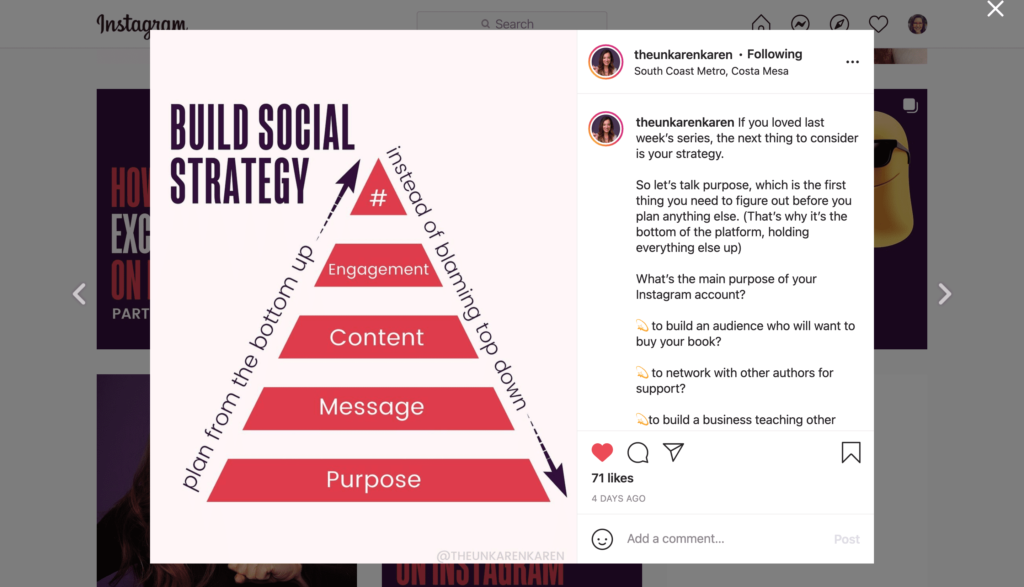
Social media has become an important way for small businesses to connect with their target audience, raise brand recognition, and make money in today’s fast-paced digital world. Small businesses that want to compete and do well in the online world need to come up with a good social media marketing plan. This detailed guide will go over the best ways to use social media to sell your small business and help it reach new heights.
Define Your Goals and Target Audience:
Before embarking on your social media journey, it’s imperative to establish clear goals. Whether it’s increasing brand visibility, driving website traffic, or generating leads, defining your objectives will guide your strategy. Additionally, identifying your target audience is essential for tailoring content that resonates with the right people.
Choose the Right Platforms:
Not all social media platforms are created equal, and each caters to a unique demographic. Research and select the platforms most relevant to your business and audience. For instance, Instagram may be ideal for visually-driven businesses, while LinkedIn is a go-to for B2B enterprises. Focusing on the platforms that align with your goals will optimize your efforts.
Content is King:

Creating high-quality and engaging content is at the heart of any successful social media marketing strategy. Craft content that adds value, educates, entertains, or inspires your audience. Incorporate a mix of visuals, such as images and videos, to enhance engagement. Consistency in posting is key to maintaining an active online presence.
Utilize Paid Advertising:
While organic reach is valuable, supplementing your efforts with paid advertising can significantly amplify your reach. Platforms like Facebook and Instagram offer targeted advertising options that allow you to reach specific demographics based on interests, location, and behavior. Allocate a budget for paid campaigns to boost your visibility and drive conversions.
Engagement and Community Building:
Social media is not just about broadcasting your message; it’s about building relationships. Actively engage with your audience by responding to comments, messages, and mentions. Foster a sense of community by encouraging user-generated content, running contests, and showcasing customer testimonials. A thriving online community can become a powerful advocate for your brand.
Implement Influencer Marketing:
Partnering with influencers in your industry can significantly expand your reach and credibility. Identify influencers whose values align with your brand and collaborate on campaigns or sponsored content. The influencer’s existing audience can provide your small business with increased visibility and trust.
Track and Analyze Performance:
Regularly monitor and analyze your social media performance using analytics tools provided by the platforms or third-party tools. Assess key metrics such as engagement, reach, and conversions. This data will guide you in refining your strategy, identifying successful tactics, and adjusting your approach to meet evolving market trends.
Stay Informed and Adapt:
The social media landscape is dynamic, with trends and algorithms constantly evolving. Stay informed about industry trends, algorithm changes, and emerging platforms. Adapt your strategy accordingly to remain relevant and capitalize on new opportunities.
Experiment with Emerging Trends:
Stay ahead of the curve by experimenting with emerging social media trends. Whether it’s adopting new features on established platforms or exploring emerging platforms, being an early adopter can give your small business a competitive edge. Keep an eye on emerging trends like live video, augmented reality, or interactive content and assess their relevance to your brand.
Collaborate with Other Small Businesses:
Forge partnerships with other small businesses in your community or niche. Collaborative efforts, such as joint promotions or shared events, can expand your reach to a broader audience. Cross-promotion not only introduces your brand to new potential customers but also fosters a sense of community within your industry.
Employ Hashtags Strategically:

Hashtags can significantly boost the discoverability of your content on platforms like Instagram and Twitter. Research and use relevant and trending hashtags within your industry or niche. Create branded hashtags to encourage user-generated content and engage with a broader audience. However, be mindful not to overuse hashtags, as it may dilute the impact of your message.
Leverage Storytelling and Authenticity:
Crafting a compelling narrative around your brand can create a deeper connection with your audience. Share the story of your business journey, showcase behind-the-scenes moments, and highlight the faces behind your products or services. Authenticity resonates with consumers, and a genuine narrative can set your small business apart in the crowded social media landscape.
Conclusion:
In conclusion, small businesses can harness the power of social media marketing by adopting a strategic and thoughtful approach. By defining clear goals, choosing the right platforms, creating compelling content, and engaging with your audience, you can build a robust online presence that drives growth and success. Stay flexible, adapt to changes, and continuously refine your strategy to stay ahead in the competitive world of social media marketing.


